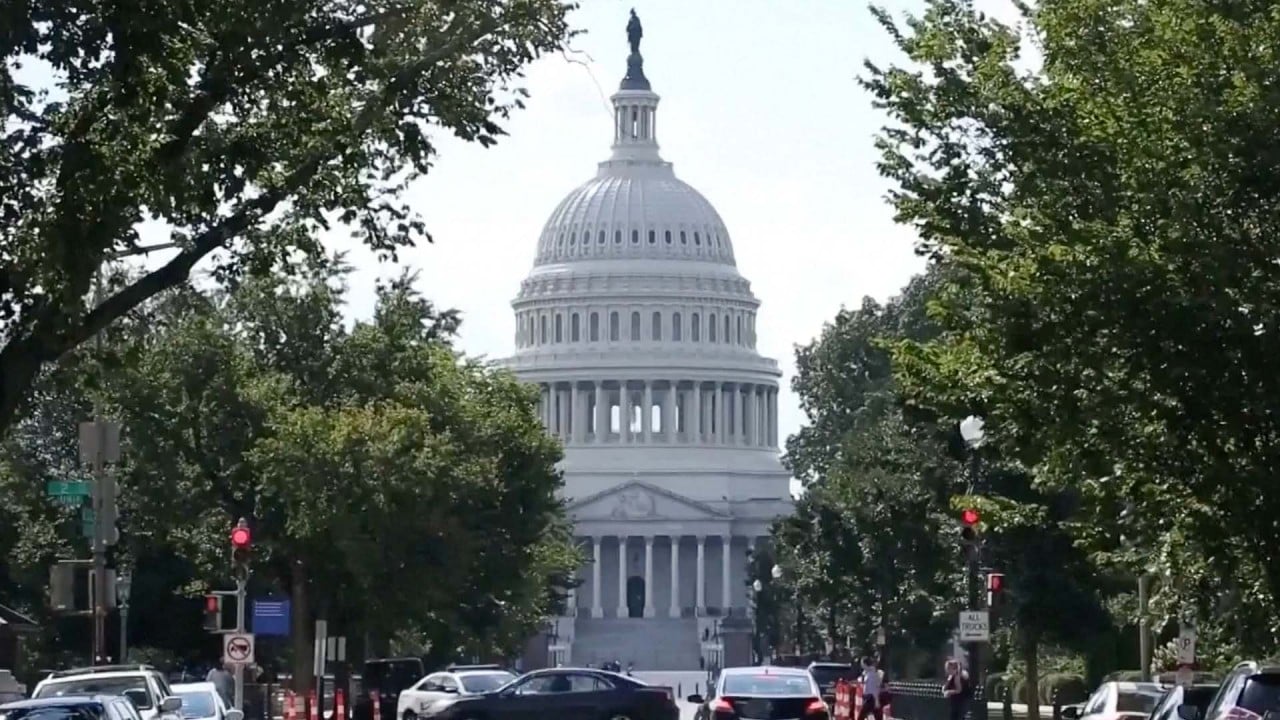
US will continue to strengthen ‘unofficial ties’ with Taiwan, vice-president Kamala Harris says
- Harris accuses Beijing of trying to coerce its neighbours and undermine the status quo in the Taiwan Strait
- Vice-president tells US sailors based in Japan that Washington will continue to support Taiwan’s self-defence in the face of Beijing’s ‘aggressive behaviour’
Speaking to American sailors on the USS Howard, an Arleigh Burke-class destroyer based in Yokosuka, Japan on Wednesday, Harris said Beijing had undermined the international rules-based order and “flexed its military and economic might to coerce and intimidate its neighbours”.
She said: “We anticipate continued aggressive behaviour from Beijing, as it attempts to unilaterally undermine the status quo.
“We will continue to oppose any unilateral change to the status quo. And we will continue to support Taiwan’s self-defence, consistent with our long-standing policy.
“Taiwan is a vibrant democracy that contributes to the global good – from technology to health, and beyond, and the United States will continue to deepen our unofficial ties.”
She added stability and peace in the Taiwan Strait is an “essential feature” of a “free and open Indo-Pacific”, and said the US will continue to operate in the region “undaunted and unafraid”.
Beijing sees the self-ruled island as part of its territory and has never ruled out the possibility of using force to seek unification. Foreign Minister Wang Yi reaffirmed China’s determination at the United Nations General Assembly last week, saying only unification will bring peace to the Taiwan Strait and warning the US of conflict if it continues to interfere.
Most countries, including the US, do not recognise Taiwan as an independent state. Washington, however, opposes any attempt to take the island by force.
She also met Australian Prime Minister Anthony Albanese on the sidelines of Abe’s funeral, where Australia pledged to engage more with the US to speed up the process of acquiring of nuclear-powered submarines under the Aukus pact.
Harris is travelling on to South Korea, where she is expected to become the first senior figure in Biden’s administration to visit the demilitarised zone.
In response to Harris’s comments to Kishida, Chinese foreign ministry spokesman Wang Wenbin called on the US to “clearly reiterate the one-China policy,” adding China’s response to Pelosi’s visit had been “reasonable and legitimate”.
Before her visit to the US naval base in Yokosuka, Harris held talks with Japanese firms including Tokyo Electron, Nikon, and Fujitsu and he called on US and Japanese firms to “diversify” their supply chains, saying “no one country can satisfy the globe’s demands”, according to a White House readout, in a seeming reference to China.
China has been recently targeted by a series of US restrictions on its semiconductor industry. The new US Chips and Science Act restricts American companies from building advanced chip factories in China. Leading firms such as Nvidia have already been banned from selling chips to China.

 - Kawala Xie.jpg?itok=NogZcyZ-&v=1661304068)
